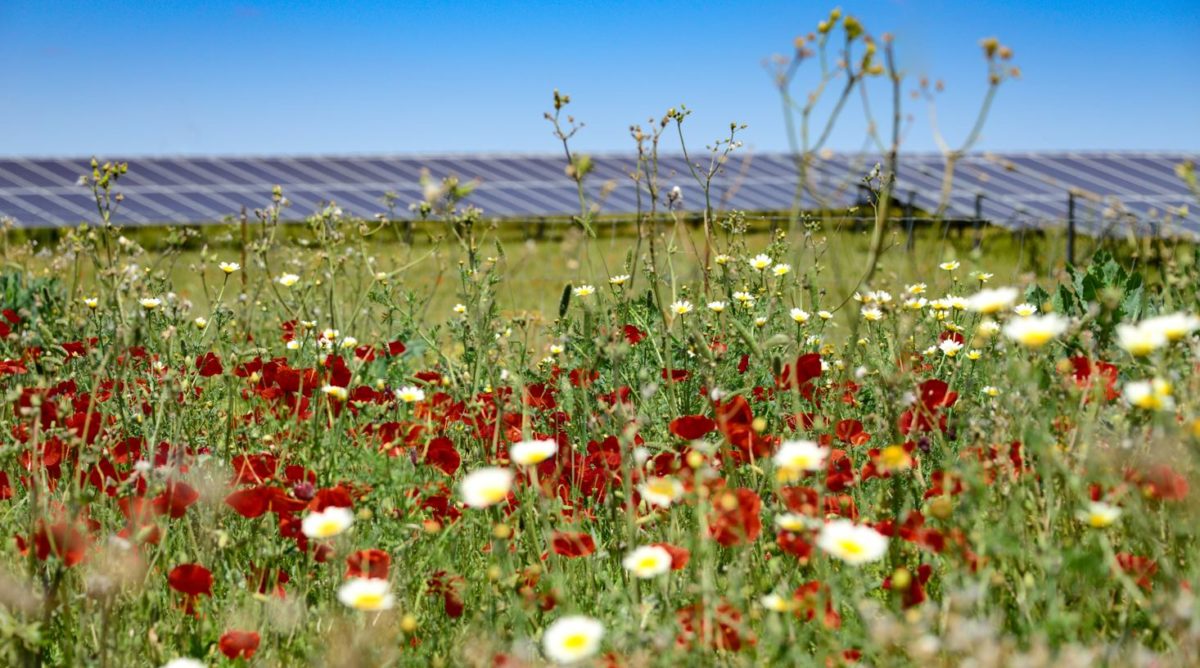Solar developer Baywa re has signed a 10-year virtual power purchase agreement (VPPA) with Finnish packaging company Huhtamaki for two new solar projects in Spain. According to the partners, it is the biggest corporate solar VPPA for the packaging industry in Europe and the first for a Finnish company.
Huhtamaki, primarily a food packing business, has ambitions to “become the first choice in sustainable packaging solutions.” That goal includes reaching carbon neutrality and sourcing all electricity from renewables this decade, and the Finnish company is taking a big step in that direction with a VPPA which will see 200 GWh of solar electricity satisfy around 80% of Huhtamaki's annual European power needs. Given the company's 18 European manufacturing sites, across 10 countries, that is the equivalent of 89,000 tonnes of CO2 abated by the provision of enough clean energy to power almost 25,000 homes per year.
The power supply deal makes possible two new solar farms in southern Spain with an aggregate generation capacity of 135 MWp. Huhtamaki will buy the power from Baywa at a pre-determined price. BayWa said the VPPA has been structured “with an innovative price mechanism that benefits both parties during times of high electricity costs and [the] current supply chain challenges with PV modules.”
Fast
While virtual power purchase agreements have been somewhat criticized for being overly complicated in the past, the partners to this deal said it took only eight weeks to settle, from inception to signing, with BayWa re chief executive Matthias Taft noting the speed of the “milestone VPPA … demonstrates the collaborative relationship that has been established, and we look forward to continuing to work together.”
“Supporting Huhtamaki on its journey to achieving the company's sustainable energy goals represents another important milestone in BayWa re's own commitment to advancing the corporate energy transition that is so pivotal to meeting global climate targets,” said Taft.
Charles Héaulmé, president and CEO of Huhtamaki agreed, noting renewable energy agreements like these demonstrate making progress on climate targets is possible “in a short time.”
Huhtamaki's executive vice president of sustainability and communications, Thomasine Kamerling, added, while the BayWa deal is the company's first virtual power supply deal, the developer expects “to embark on other VPPAs shortly, with the next one in the United States. In addition, we are installing solar panels at our sites, where feasible, and working relentlessly to improve our energy efficiency.”
Power purchase agreements (PPAs) and VPPAs are increasingly attractive options for corporate energy purchasing. BayWa re's head of PPAs for the Europe, Middle East and Africa region, Daniel Parsons, said: “More and more corporations, from ever widening industry sectors, are sourcing renewables and putting PPAs in place to achieve carbon reduction targets while also securing savings against electricity price volatility. We are proud to be supporting Huhtamaki as they lead the way in the packaging industry and I hope it encourages other corporations to follow.”
Hedge
Aside from helping companies reduce their carbon footprints and meet sustainability targets, the attraction of VPPAs is as a hedge against the kind of volatile electricity prices witnessed in recent times. A virtual power purchase agreement is essentially a contract for differences (CFD), in that the parties agree a fixed VPPA price and if the wholesale energy price is higher, the offtaker (in this case, Huhtamaki) receives the difference. If the wholesale energy price is lower than the VPPA tariff agreed, the offtaker pays the solar project owner the difference. The VPPA does not involve the physical delivery of solar electricity to Huhtamaki's load centers and instead operates as a hedge against varying electricity prices.
The buyer should also receive renewable energy guarantees of origin (GOs) for the solar energy purchased, plus the knowledge new renewable energy generation capacity would not have been possible without its involvement, an example of ‘additionality.'
Construction on the solar farms will start next year with an expected energy delivery date, to Huhtamaki, in the third quarter of 2023.
This content is protected by copyright and may not be reused. If you want to cooperate with us and would like to reuse some of our content, please contact: editors@pv-magazine.com.




By submitting this form you agree to pv magazine using your data for the purposes of publishing your comment.
Your personal data will only be disclosed or otherwise transmitted to third parties for the purposes of spam filtering or if this is necessary for technical maintenance of the website. Any other transfer to third parties will not take place unless this is justified on the basis of applicable data protection regulations or if pv magazine is legally obliged to do so.
You may revoke this consent at any time with effect for the future, in which case your personal data will be deleted immediately. Otherwise, your data will be deleted if pv magazine has processed your request or the purpose of data storage is fulfilled.
Further information on data privacy can be found in our Data Protection Policy.